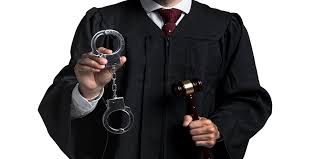Criminal Law and Procedural Aspects of Criminal Prosecution
Introduction.
Criminal law is one of the main branches of law that regulates social relations related to crimes and punishments. Criminal procedure covers the procedures and rules governing the activities of law enforcement and judicial authorities in cases of crime. In this article, we will review the main provisions of criminal law and procedural aspects of criminal prosecution.
Criminal Law
Definition and Objectives
Criminal law is a system of legal norms that define which socially dangerous acts are crimes and what penalties are applied to the perpetrators. The main objectives of criminal law are to protect human rights and freedoms, property, public order and security.
Classification of Crimes
Crimes are classified according to various criteria:
By the degree of severity: crimes are divided into minor, moderate, serious and especially serious.
By the object of the offense: crimes against a person, property, public order, the state, etc.
By the form of guilt: intentional, reckless and mixed crimes.
Corpus delicti
The corpus delicti of a crime includes four main elements:
Object : the social relations encroached upon by the crime.
Objective side: external manifestations of the crime (actions or inaction, consequences, causation).
Subject: the person who committed the crime (a natural person of sound mind who has reached the age of criminal responsibility).
Subjective side: the internal attitude of the person to the committed act (intent or negligence).
You may also be interested in the following articles: legal advice, legal advice, legal analysis of the situation, written advice, verification of documents by a lawyer, lawyers documents, online legal advice, online lawyer, legal opinion, legal opinion of a lawyer, lawyer online.
Types of punishment
Punishment is a measure of state coercion applied to a person found guilty of a crime. Types of punishment include:
Fines
Imprisonment
Arrest
Correctional labor
Confiscation of property
Deprivation of certain rights
Criminal proceedings
Stages of the Criminal Procedure
The criminal procedure consists of several main stages:
Initiation of criminal proceedings: Initiation of an investigation based on a complaint about a crime or other information about its commission.
Pre-trial investigation: gathering evidence, conducting investigative actions, and making decisions on prosecution.
Trial: hearing of the case by the court of first instance, hearing of the parties, and sentencing.
Appellate proceedings: review of the verdict by a higher court upon appeal by the parties.
Execution of the sentence: the implementation of the sentence imposed by the court.
Participants in Criminal Proceedings
Victim: a person who has suffered moral, physical or property damage as a result of a crime. The victim has the right to participate in the proceedings, submit evidence, statements and motions.
Civil plaintiff: a person who claims compensation for damage caused by a crime.
Civil defendant: A person who, in accordance with the law, is financially liable for the damage caused by a crime.
Witnesses, experts, interpreters: persons who provide the court with information necessary for the consideration of the case.
Principles of Criminal Procedure
The basic principles of criminal procedure include:
Legality: all actions of the participants in the process must comply with the requirements of the law.
Presumption of innocence: a person is presumed innocent until proven guilty by law and established by a court verdict.
Ensuring the right to defense: a suspect, accused, or defendant has the right to defense, including the right to a lawyer.
Competitiveness of the parties: the parties to the proceedings (prosecution and defense) have equal rights to present evidence and motions.
Publicity of the trial: court hearings are open, except as provided by law.
Non-prosecution for the same act: no one may be prosecuted twice for the same act.
Pre-trial investigation
The pre-trial investigation is one of the most important stages of the criminal process, during which evidence is collected to establish the circumstances of the crime and the perpetrators.
The main stages of the pre-trial investigation
Initiation of criminal proceedings: commencement of an investigation based on a complaint about a crime, a report of a crime or detection of signs of a crime.
Conducting investigative actions: searches, inspections, interrogations of witnesses, examinations and other actions aimed at collecting evidence.
Bringing to justice: serving a suspicion or charge on a person against whom there is sufficient evidence of his or her involvement in a crime.
Indictment: A document that contains a description of the crime, the basis for the charges, and a list of evidence.
Referral of the case to the court: sending the indictment to the court for a trial on the merits.
Trial
The trial is the central stage of the criminal process, during which the court examines evidence, hears testimony from the parties and passes judgment.
Main Stages of the Trial
Preparatory hearing: resolving issues related to the preparation of the case for trial (setting the date of the hearing, calling witnesses, etc.).
Trial on the merits: Examination of evidence, interrogation of witnesses, hearing expert opinions and speeches by the parties.
Court arguments: the parties discuss the evidence and circumstances of the case, expressing their positions on the guilt of the accused and the degree of punishment.
Sentencing: the court decides on the guilt or innocence of the accused and determines the punishment.





























